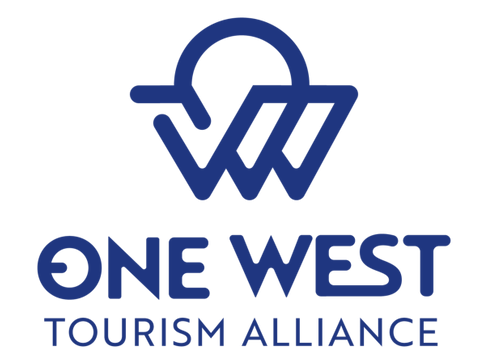We sat down with longtime trendspotter and friend Marian Salzman, in between many media interviews around her famous annual report that distills global predictions about everything from culture, homing and burrowing habits, personal values and balance (the end of the hustle culture) and deliberate impact. She shared her thoughts and checked our own perspectives on the tourism industry and consumer travel.
Will retro continue to stay in 2025?
Retro won’t just stay in 2025; it will intensify. Part of it stems from people getting more serious about sustainability—even if they are hugely inconsistent in pursuing that—but I think the trend is driven even more by a desire for comfort and connection. The world is spinning at a dizzying pace, and people want to feel tethered to something stable and authentic. What could be better than connecting to previous eras (or at least our romantic imaginings of those eras)?
Not everything retro is old, of course. Manufacturers are leaning in as well. For instance, we’re beginning to see a full-blown 1950s-inspired vintage revival in our kitchens, with products such as Dualit toasters from Britain. Lowe’s now carries a “Classic Retro” line of kitchen appliances, including 1950s-style fridges, ranges, and dishwashers. And, in a sharp departure from the black and stainless steel of recent years, they come in a suite of soothing colors, including Ocean Mist Turquoise and Summer Mint Green.
Retro fashion is also all the rage, and not just among young people. I’ve started to detect a real yearning for old-world style among men. Maybe it’s the influence of Derek Guy (aka “the style guy”), but I’m seeing more men toss aside their sweats for well-tailored trousers, cashmere or cable-knit sweaters, and the like. I wouldn’t be surprised to see old-world speakeasies pop up with an unspoken dress code harking back to the 1920s–1950s.
Will the tourism industry start taking accountability for carbon emissions?
Honestly? Not so much—or at least not in a way that makes a meaningful difference. Air travel is believed to contribute around 4 percent to global warming, and we’ll continue to see carbon offsets and that sort of thing, but it would require government mandates to keep people out of the skies, and that’s not going to happen anytime soon. We’ll see how long it takes before planes powered by hydrogen hit the market. We’ll see more sustainability-focused peer pressure along the lines of Sweden’s Flygskam (“flight shame”) movement, but it’s too easy for the average person to justify their travel, especially when they compare the frequency of their trips with those of celebrity jet setters. Why should it only be rich people who get to see the world?
Mostly, what I think we’ll see in this space is local communities pushing back more forcefully against tourism and overcrowding. Some of it will be in the form of behavioral nudges, such as we’ve seen with the Palau Pledge (a fantastic campaign created by my former agency). Beyond that, we’ll also see more government-led efforts to stem the tide of tourists—such as Amsterdam’s decision to block the construction of new hotels—and increasingly less polite tactics from locals (e.g., last summer’s spate of tourists in Barcelona being doused by water pistols).
Will 2025 be the year of new destinations to discover?
I do think we’ll see a continuation of eco-travel and a heightened desire to visit less explored parts of the world—including via “slow travel,” ranging from walking tours to RVing and canal boats. Regarding destinations, I would expect to see more group travel to out-the-way places—especially with a cultural focus.
We will also see a trend toward extended travel, which means Asia will become more realistic for many Americans. This will partly be due to the growing ranks of retirees and partly to younger people who can work remotely or don’t have qualms about quitting a job and taking time to travel before the next one. If there’s one thing we learned during the pandemic, it’s that life is short, and millions of people are feeling they’ve already wasted too much of it.
How will we balance our want of information and technology with our need to disconnect?
People will be much more mindful about their information sources and the amount of their intake. Numerous people I interacted with over the holidays told me they’re on a strict media diet. They’re not ignoring all the bad in the world, but they’re no longer willing to be bombarded by it 24/7. So, they listen to music or a podcast as they get ready in the morning rather than jumping right into the news. They’ve left social media platforms that stress them out and started seeking out less biased (and emotional) news sources in favor of platforms like Tangle. There’s also a real emphasis on learning. I know a few people who have given up doomscrolling during the day in favor of learning a new language via Duolingo. We’re not giving up technology; we’re just trying to make it work better for us.
What tourism trends do you see developing in 2025?
Women-only expeditions and trips catering to seniors will continue to grow in popularity, as will travel with a cultural/educational focus. Intrepid Travel offers a women-only trip to Jordan, for example, that includes lessons in cooking the local cuisine, as well as learning the art of henna from Bedouin women and about traditional marriage from a professional matchmaker. There’s also a focus on supporting women-led businesses along the journey. That’s the sort of thing people crave: getting a chance to open their minds and explore “exotic” places while doing something meaningful.
And speaking of meaningful: more travelers will look to “give back” while on vacation. A great example of this is Australia’s Eye on the Reef program, which recruits tourists to report on the health of the Great Barrier Reef and area marine life. You can feel less guilty about your carbon footprint when you’re contributing in another way to fighting climate change.
About Marian Salzman
One of the foremost thought leaders, trendspotters, and communications experts in the world, Marian Salzman has built her career on helping companies and brands anticipate the future ahead of the competition and find their sweet spot. Over three decades, she has existed at the cusp of emerging cultural shifts, including introducing the world to “metrosexuality” in 2003 and serving as a driving force behind #GivingTuesday, an annual event that has spread to 60 countries and raised tens of billions of dollars for community programs. She is the author or co-author of 18 books—including Buzz, Agile PR, and, most recently, The New Megatrends: Seeing Clearly in the Age of Disruption (Penguin Random House, 2022).
Among other commendations, Marian has been inducted into Ragan Communications and PR Daily’s Top Women in Communications Hall of Fame (2024), was honored as PRWeek’s PR Professional of the Year (U.S. and Global) and featured in its Global Power Book, and won a Gold Stevie for Thought Leader of the Year. During an illustrious career, Marian served as Chief Marketing Officer at Porter Novelli, Chief Marketing Officer J. Walter Thompson Worldwide, and Executive Vice President and Chief Strategy Officer at Euro RSCG Worldwide (now Havas) and Chief Executive Officer at Havas PR North America. In the early 1990s, she co-founded American Dialogue (aka Cyberdialogue), where she pioneered the use of online focus groups for social research. Marian is currently Senior Vice President, Special Projects, Philip Morris International.





